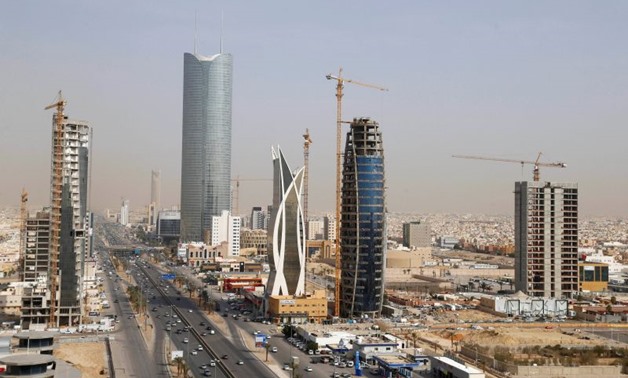
Saudi entertainment city casts wide net for investors and contractors - Reuters
QIDDIYA, Saudi Arabia - 28 April 2018: A new entertainment city that Saudi Arabia has started building southwest of the capital is seeking a broad range of financing from local and international sources, the project's chief executive told Reuters.
Qiddiya is one of three mega-projects managed by the kingdom's main sovereign wealth fund, the Public Investment Fund (PIF), as part of ambitious reforms aimed at overhauling the economy of the world's top oil exporter and providing jobs for an overwhelmingly young population.
The other two initiatives are NEOM - a $500 billion business and industrial zone extending into Egypt and Jordan - and the Red Sea project, which includes a nature reserve, diving in coral reefs and heritage sites on about 50 islands.
Qiddiya CEO Michael Reininger said the PIF's contribution would probably exceed 50 percent, with the rest likely financed through bonds, direct investment and other tools.
"Perhaps all at the same (time). All of those financial strategies are what we're working on every day," he said in an interview ahead of a groundbreaking ceremony on Saturday.
Reininger would not specify the expected investment value for Qiddiya except to describe it as "incredibly sizeable".
Local media have reported the cost of the project's infrastructure alone would reach up to 30 billion riyals ($8 bln) and the project would eventually be worth tens of billions of riyals.
Qiddiya will be built on a 334 sq km site about an hour's drive from Riyadh, making it 2-1/2 times the size of Disney World.
It will include a Six Flags theme park and other attractions like water parks and motor sports. There will also be sports training, arts and cultural events, and vacation homes.
Already some 50 people are directly employed by Qiddiya, with hundreds more contracted as local suppliers and global advisors. Those numbers are expected to reach 55,000 when the first phase opens in 2022.
An official spokesman said Qiddiya expects to develop 34 sq km of land and attract 1.5 million visitors annually by then.
The project aims to be the epicentre of entertainment, cultural and sports activity in a country that has historically shunned such activities on religious grounds but is now pursuing them to generate economic returns and open up Saudis' cloistered lifestyles.
GIANT MARKET
With two thirds of the population under 35 and few local entertainment offerings, many Saudis flock to nearby Bahrain or Dubai seeking fun at the weekends. The state wants to secure up to a quarter of the $20 billion currently spent on entertainment overseas each year.
"Capturing as much of (those expenditures) as I possibly can is the objective and at the same time creating a bigger pie so that I can get the disproportionate share of that bigger pie that we create at the same time," Reininger said.
"We're not just going to go around the world, find things and copy them. We're going to innovate and we're going to stay ahead of the curve."
Reininger, an American who joined Qiddiya last month, previously worked on a high-speed rail system in Florida, oversaw large-scale resort developments for the Walt Disney Company, and was a senior executive at engineering firm AECOM.
Asked about avoiding the pitfalls of other mega projects in the region, which have suffered long delays and cost overruns and sometimes fell far short of expected returns, Reininger said Qiddiya stood apart by fulfilling a clear economic need.
"It's a giant market, there's not a lot of competition, there's a clear opportunity. That's the kind of thing you want to invest in," he said.
Asked whether social restrictions in place in other parts of Saudi Arabia, like gender segregation and a strict dress code for women, would apply, Reininger said Qiddiya would stay "on the leading edge" of changes in the kingdom, which has eased many of those rules in recent years.
Entertainment has been a prominent success of Crown Prince Mohammed bin Salman's reform drive, with public concerts and shows now a regular occurrence and a nearly 40-year ban on cinemas lifted this month.

Comments
Leave a Comment